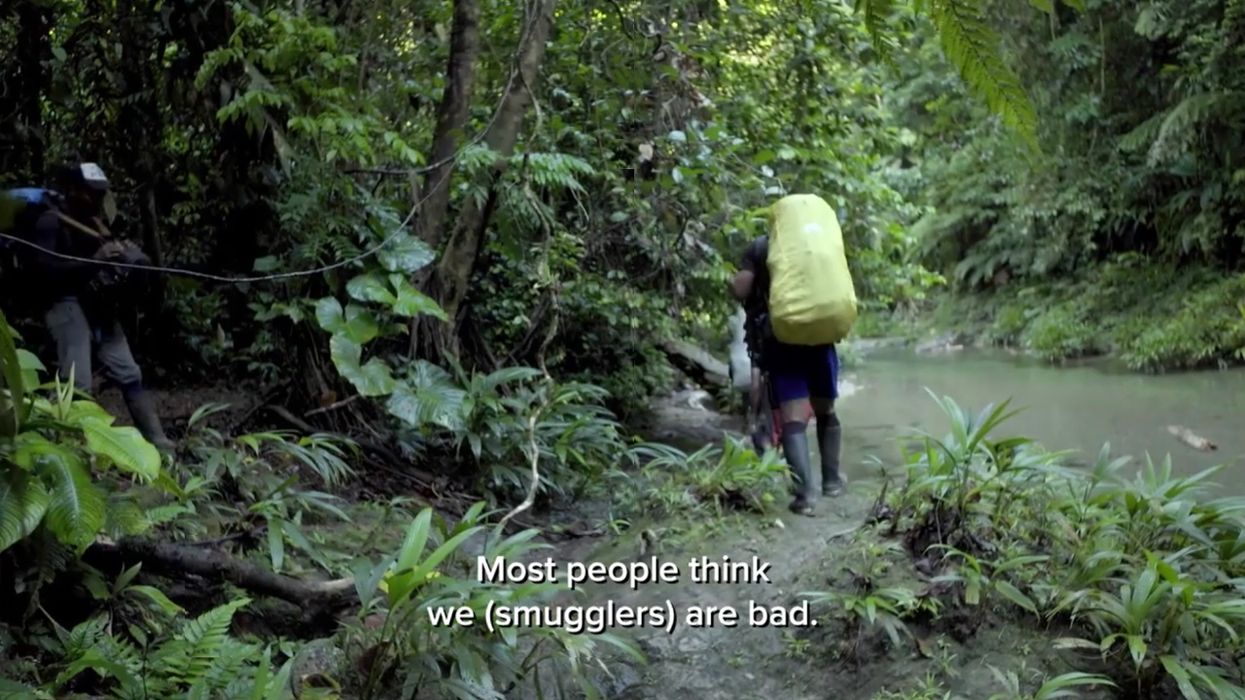
(Image source: CNN screenshot)

"the immigration debate was missing a news article applauding the kinder, gentler side of human traffickers"
A backlash on social media isn't a reliable gauge of whether a person or story is correct or a take is good or bad, but sometimes even the internet mob gets it right. That is the case with the tremendous negative response to a story that was tweeted by CBS News over the weekend praising so-called "coyotes."
Coyote is a term anyone who has ever followed the immigration debate has heard before. It's a term for the human smugglers who lead people into the United States illegally, often committing many other crimes along the way.
Coyotes have been a big part of the public debate over illegal immigration. Their literal task, their function, is to smuggle human beings across the border. But migrants seeking the United States are a vulnerable population, and that also attracts some of the worst elements. Aside from run-of-the-mill human smugglers, coyotes count among their ranks rapists, scammers, and human traffickers. Kidnapping, extortion, even murder are on the resume.
Or, if you're CBS News, you might refer what they do as "helping."
A 2010 report from the United Nations estimated the revenue generated by the network of coyotes smuggling people from Central and South America into the U.S. at about $6.6 billion, annually. Migrants hoping to make their way here can pay anywhere from $4,000 to over $10,000 dollars for the services of a coyote. That's per person. From within Mexico prices can be considerably less, as low as below a thousand.
Even without a criminal element to contend with, the "business" is incredibly risky. It involves paying bribes to government officials in multiple countries, paying off the drug cartels, hiding in safe houses, and arduous hiking through jungles, across open terrain, all the belongings you can carry on your back, and often with inadequate supplies.
The dangers are not unknown to the media, or to Americans in general. The Migrant Quilt Project, which memorializes the names of the thousands who die on the journey, has received mainstream coverage, for one example. In 2017, CNN ran the story of the high toll human smuggling takes, following the grisly death of ten migrants found abandoned in the trailer of a semi.
"Every year, hundreds of undocumented immigrants perish trying to make the journey. And virtually all of those deaths occur while being smuggled," the story reports. It cites as a key danger the control the drug cartels have over the land on the other side of the border, a "stranglehold" according to a spokesman for Customs and Border Protection.
At that time, UNICEF and World Without Exploitation released a statement. "Children are particularly vulnerable and are preyed upon by human traffickers," it read. "Smugglers also take advantage of children and their families by extorting them with threats and false promises"
The romanticized CBS article touts the entrepreneurial spirit of the coyotes they profile, as well as the depth of their personal relationships.
"Emerson Gonzalez Jimenez said he typically charges $700 to get people safely from Capurgana, Colombia, to Bajo Chiquito, Panama," the article says. "He said he sometimes makes exceptions and lowers the cost, especially if he encounters migrants who were abandoned by their group."
His help is praised several times. "I helped a lot of people, particularly women with children," they quote the coyote. "Because many have passed through here and not made it."
Many have not made it. That's quite so.
The CBS article doesn't bring up the kidnapping, extortion, rape or murder. It does, however, offer that some people think human smuggling is bad.
The average take-home salary in Colombia is about $26,000 a year after taxes. Augustin says the supplemental income he makes smuggling migrants through the Darien Gap enables him to afford his house and raise his kids in a happy, healthy home. But they don't only do it for the money.
"Most people think we (smugglers) are bad," Gonzalez Jimenez said. "But if a person needs to go from there to here, and can't do it… and they tell me, 'I'm going to pay you five, 10, 20 dollars… to take me to whatever location.' And if I didn't have a job at the time… to me, that's good."
Naturally, the reactions to the CBS News Tweet of the article were less than positive.
It's hard to think of anything to add to those replies. That pretty much covers it.
Caleb Howe
Contributor